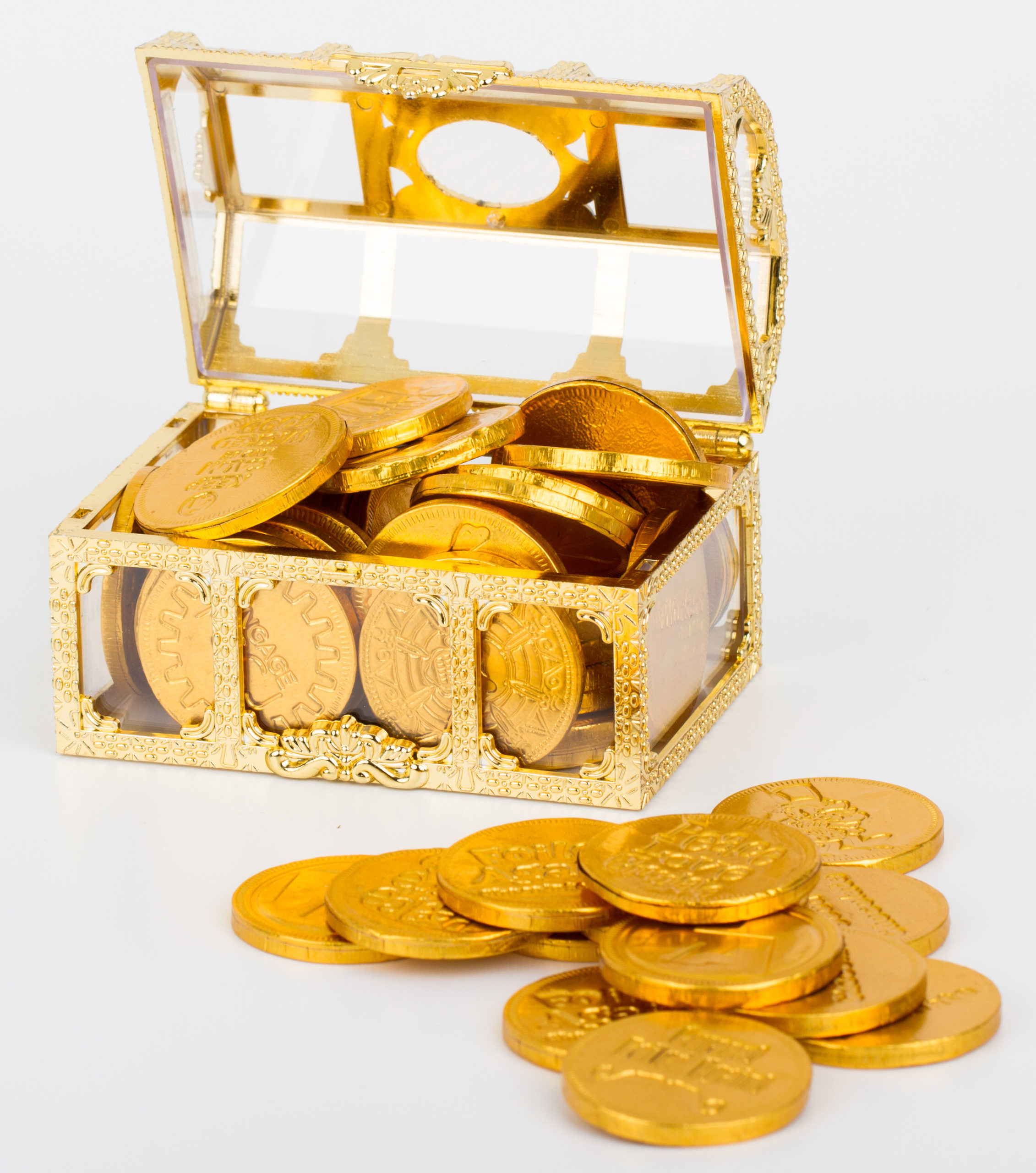Exploring the Allure of Coin Treasures and Their Value


If you’re seeking investment opportunities, consider rare currency collectibles as a solid avenue. Engaging in this sector can lead to significant long-term returns, particularly with items that possess historical significance or unique characteristics. Research recent auction prices and expert evaluations to ascertain which pieces are gaining traction in collector circles.
Investing in scarce currency can provide not only financial benefits but also a captivating hobby. Focus on pieces from various periods, as different eras often display varying aesthetics and minting techniques. For instance, old coins from ancient civilizations or iconic designs like the Morgan Dollar tend to attract attention due to their artistry and heritage.
Establish a budget and determine which types interest you most. Look for reputable dealers or auctions where provenance is verified. Joining collector communities can also enhance your understanding of market trends while connecting with fellow enthusiasts. Aim to keep abreast of current valuations, as these collectibles can appreciate significantly, especially in times of economic uncertainty.
Understanding Coin Rarity and Its Impact on Value
Focus on mintage figures. Lower production quantities typically increase scarcity, resulting in higher demand. Research historical mintages for specific issues to determine their rarity.
Check condition ratings. Coins in better grades often fetch significantly higher amounts. Utilize grading scales like the Sheldon scale, which ranges from 1 (poor) to 70 (perfect). A coin graded MS65 can be worth multiple times more than one graded MS60, depending on its rarity.
Examine demand trends. Some rare pieces gain popularity due to collector interests, market trends, or auctions. Monitor auctions and sales platforms to grasp current desirability.
Investigate historical significance. Coins linked to important events or figures often have heightened appeal. Assess the context surrounding the release of specific coins to gauge their historical impact.
Consider certifications. Coins authenticated by reputable grading services like PCGS or NGC tend to attract more attention from buyers. Certification guarantees authenticity and quality.
Inquire about variety types. Subtle variations in design or mint marks can elevate a coin's rarity. Cataloguing resources and expert guides can provide details on known varieties.
Observe market fluctuations. Prices can change based on economic factors and collector sentiment. Regularly review auction results and market reports to stay informed on fluctuations affecting rare coins.
Engage with collector communities. Forums, clubs, or groups can offer valuable insights on rare finds and current market conditions. Networking with other collectors enhances knowledge and opportunities for acquisitions.
How to Identify Valuable Coins in Your Collection
Begin with examining the coin's condition. Use a grading scale such as the Sheldon Scale (ranging from 1 to 70) to determine quality. Pay attention to surface wear, luster, and any marks. Coins in higher grades command premium prices.
Check for rarity. Research mintage figures for each coin type. A limited production run increases desirability among collectors. Utilize resources like numismatic guides or databases to identify scarce pieces.
Assess historical significance. Some coins celebrate events or figures that have shaped history. Coins from notable eras or with unique backstories may have inflated worth due to their cultural relevance.
Identify demand trends. Stay updated with auction results and collector forums. Popular coins often fluctuate in demand, influencing market prices significantly.
Verify authenticity. Use techniques such as weight measurements, magnet tests, or professional authentication services. Counterfeit coins can appear convincing, so thorough verification is necessary.
| Factor | Importance |
|---|---|
| Condition | Higher grades attract higher prices. |
| Rarity | Limited mintage enhances desirability. |
| Historical Significance | Events or notable figures can amplify value. |
| Market Demand | Popularity influences worth and Collector interest. |
| Authenticity | Verification prevents losses from fakes. |
Document your findings. Maintain records of your collection, including purchase prices and market values. This information helps in evaluating your assets accurately over time.
Consult experts. Engaging with numismatic societies or professional appraisers offers valuable insights. Networking can provide up-to-date information on current market trends.
Market Trends: Where to Buy and Sell Coin Treasures
For acquiring valuable numismatic pieces, consider major online platforms such as eBay, where auctions expose you to a wide range of collectible options. Specific categories like "coins" refine searches effectively, allowing buyers to spot lucrative opportunities. Additionally, trusted dealers like APMEX or JM Bullion provide a secure shopping experience with informative listings.
Local coin shops offer face-to-face transactions, which can yield unique finds and personalized advice. Building relationships with local dealers may lead to insider information about upcoming sales or rare pieces. Coin shows remain a vital venue for enthusiasts, enabling both purchasing and networking opportunities with fellow collectors.
When selling, evaluate the current market through price guides such as the Red Book or online valuation tools. This knowledge aids in setting realistic prices. Auction services like Heritage Auctions allow sellers to reach a larger audience, ensuring potential competitive bids. Always choose platforms with positive reviews and a proven track record to enhance the likelihood of satisfactory sales.
Consider specialized forums like CoinTalk or Reddit’s r/coins for community-based transactions, where direct exchanges may occur without intermediary fees. Always verify the credibility of buyers or sellers to mitigate risks associated with scams.
Tracking market trends using numismatic journals or websites dedicated to coin collecting can provide insights into fluctuating values. Staying informed is key to making strategic buying and selling decisions, positioning you ahead of shifts in the market.
Factors that Influence Coin Valuation for Collectors
To accurately assess numismatic items, collectors should consider the following key aspects:
- Rarity: Items that are scarce tend to carry more significance. Limited mintages or those with unique characteristics often command higher prices.
- Condition: Grading scales evaluate wear and preservation. Coins in superior condition, generally graded higher, can fetch premiums.
- Historical Significance: Pieces linked to important events, figures, or eras may attract collectors willing to invest more.
- Demand: Popularity among collectors can elevate market prices. Trends can shift, so staying informed about what is sought after is crucial.
- Provenance: A documented history can enhance desirability. Items previously owned by notable collectors or featured in prestigious auctions may have added allure.
- Market Trends: Regularly monitor auction results and sales data. Understanding market fluctuations can help collectors make educated purchases.
- Design: Aesthetic appeal plays a role. Coins with captivating designs or innovative features tend to stand out.
- Material Composition: The metal content can affect intrinsic value. Precious metals like gold or silver typically hold more value than base metals.
- Certification: Professional grading services can influence buyer confidence. Certified pieces often enjoy higher market recognition and value.
Collectible items require careful consideration of various factors influencing their market worth. Engage with local dealers, attend shows, and join online forums to enhance understanding of current valuations.
Preservation Techniques for Maintaining Coin Condition
Store coins in holders made of inert materials such as Mylar, PVC-free holders or capsules to avoid chemical reactions.
Keep individual pieces in a controlled environment, maintaining low humidity levels (ideally below 50%) to prevent corrosion and tarnishing.
Avoid handling coins with bare fingers; use cotton gloves to minimize skin oil transfer and potential scratches.
Cleaning should be minimal; for dirt or tarnish, use a soft brush or cloth specifically designed for numismatic items rather than harsh chemicals.
Shield from direct sunlight which can cause fading or discoloration; opt for dark, cool storage areas.
Rotate display pieces regularly to minimize exposure to light and prevent uneven fading or wear.
For long-term storage, consider refrigeration, but ensure coins are wrapped properly to avoid moisture accumulation.
Regularly inspect collections for signs of deterioration, addressing any issues immediately to prevent further damage.
Legal Considerations for Owning and Trading Rare Coins
Acquire knowledge of local regulations regarding ownership of unique currency. Each jurisdiction may impose different laws on possession, particularly with historical or cultural items. Verify if any permits or licenses are necessary before starting a collection.
Always authenticate the provenance of rare pieces. Documentation proving origin is critical to avoid legal disputes. Work with reputable dealers to ensure proper records are maintained, preventing future complications during selling or trading.
Understand tax implications associated with transactions. Capital gains tax may apply when selling collectible pieces for profit. Consult a tax professional to clarify obligations and potential deductions related to costs incurred in acquisitions.
Be aware of counterfeit risks. Selling or trading fake items can lead to legal action. Utilize grading services and third-party authentication to safeguard against fraud. Join collector associations for additional resources and support in verifying authenticity.
Keep abreast of any changes in laws affecting collectible currency. Legislative actions can alter regulations significantly. Regularly consult industry news and updates to remain compliant. Engage with local collector societies for networking and information sharing.
